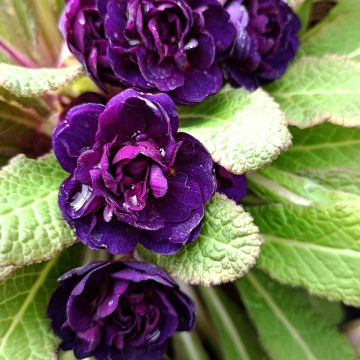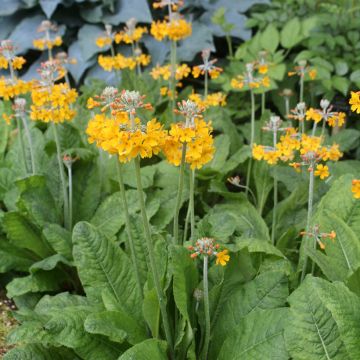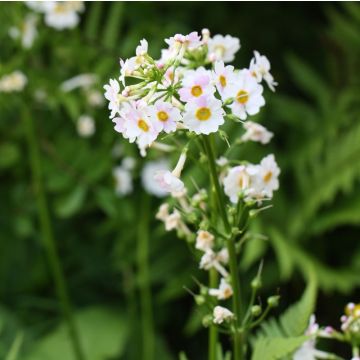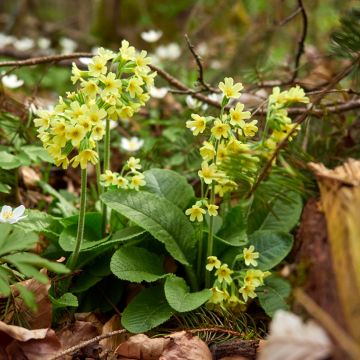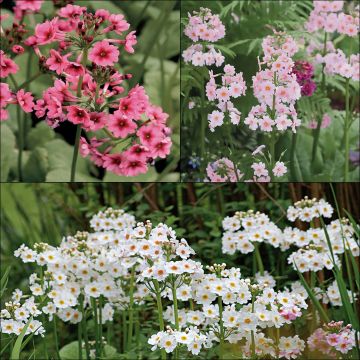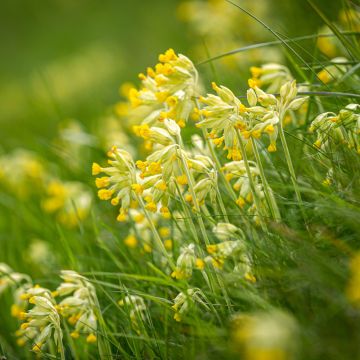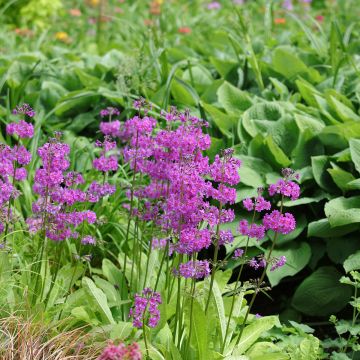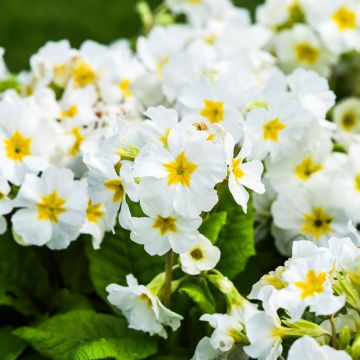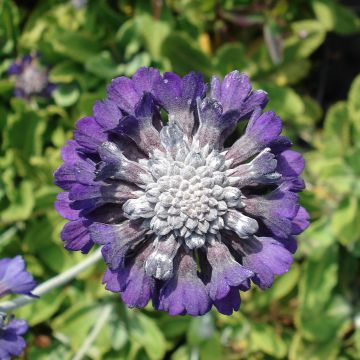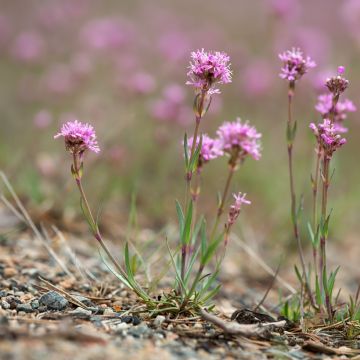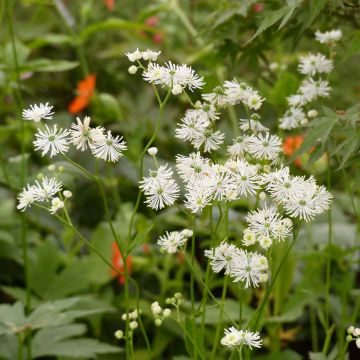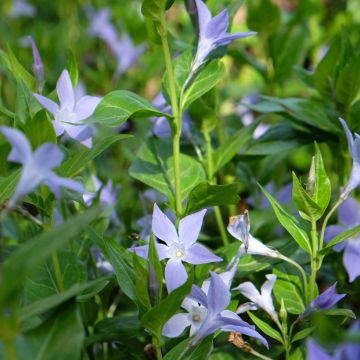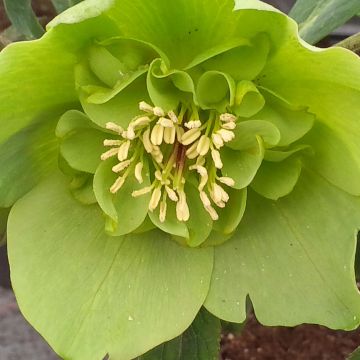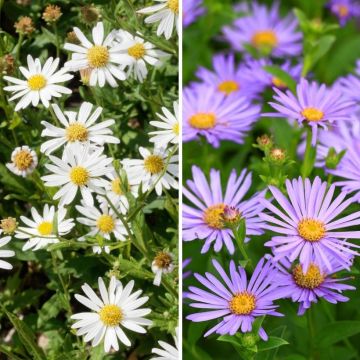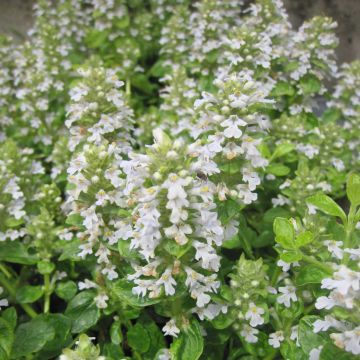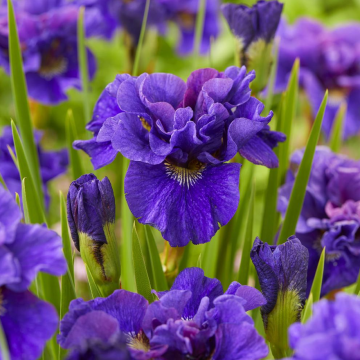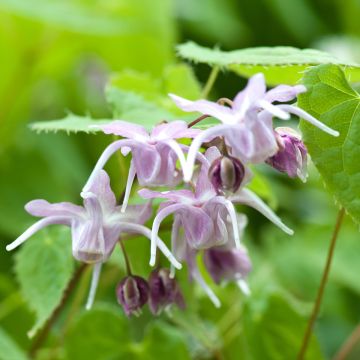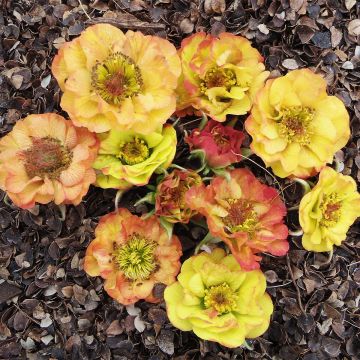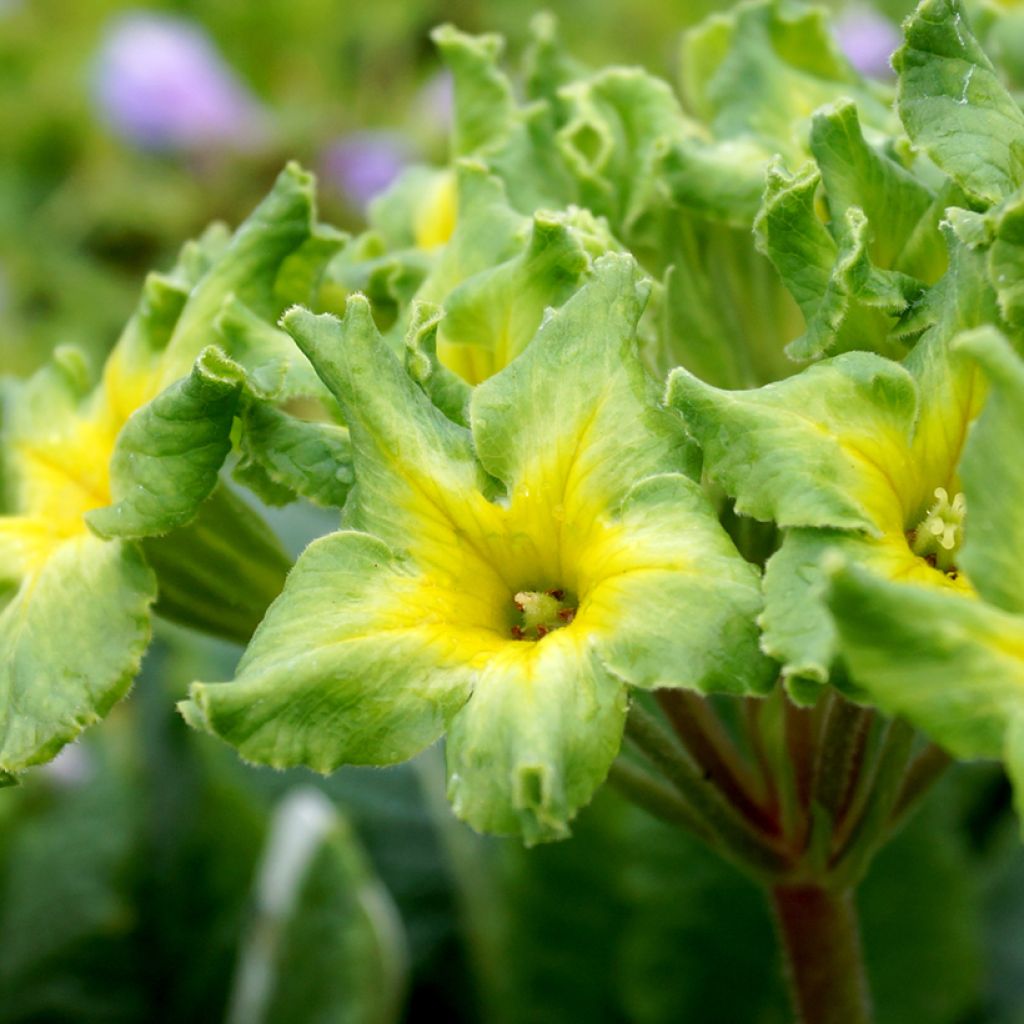

Primula vulgaris Francesca - English Primrose
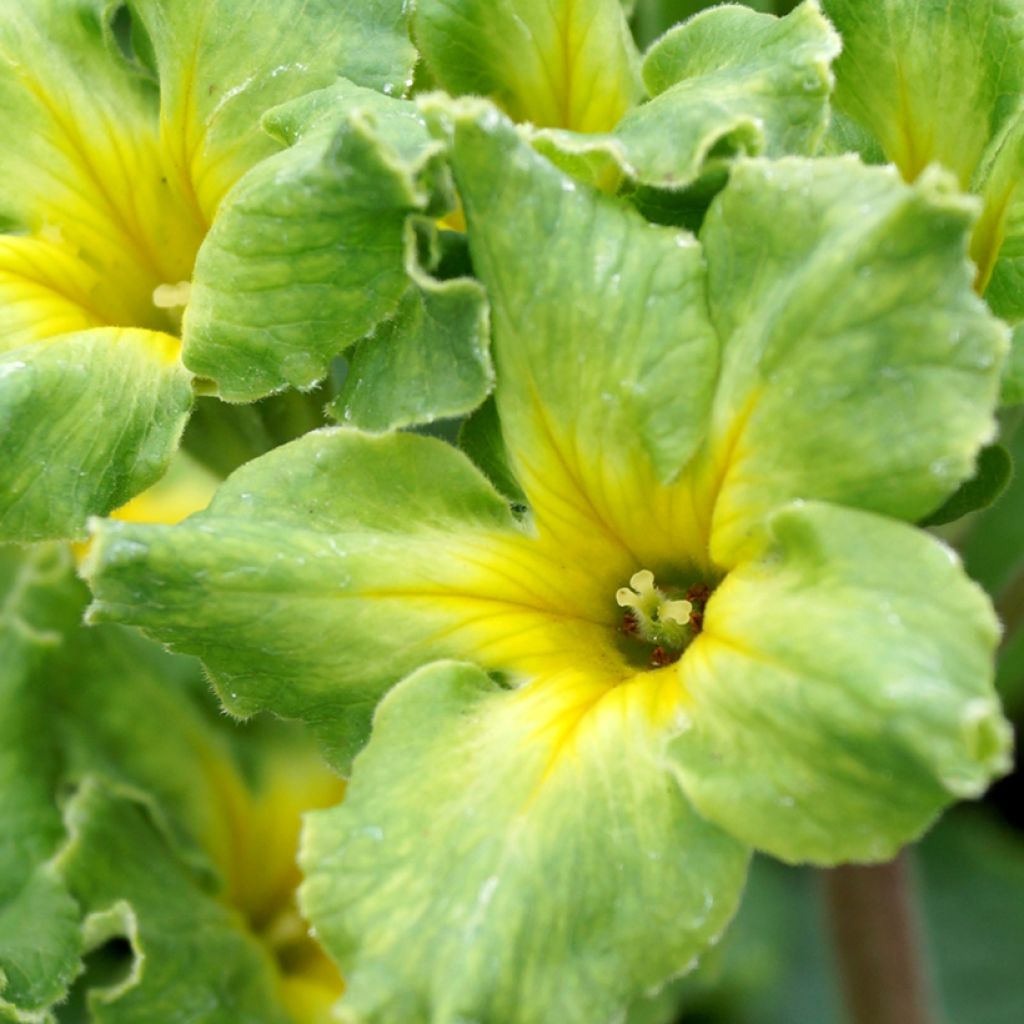

Primula vulgaris Francesca - English Primrose
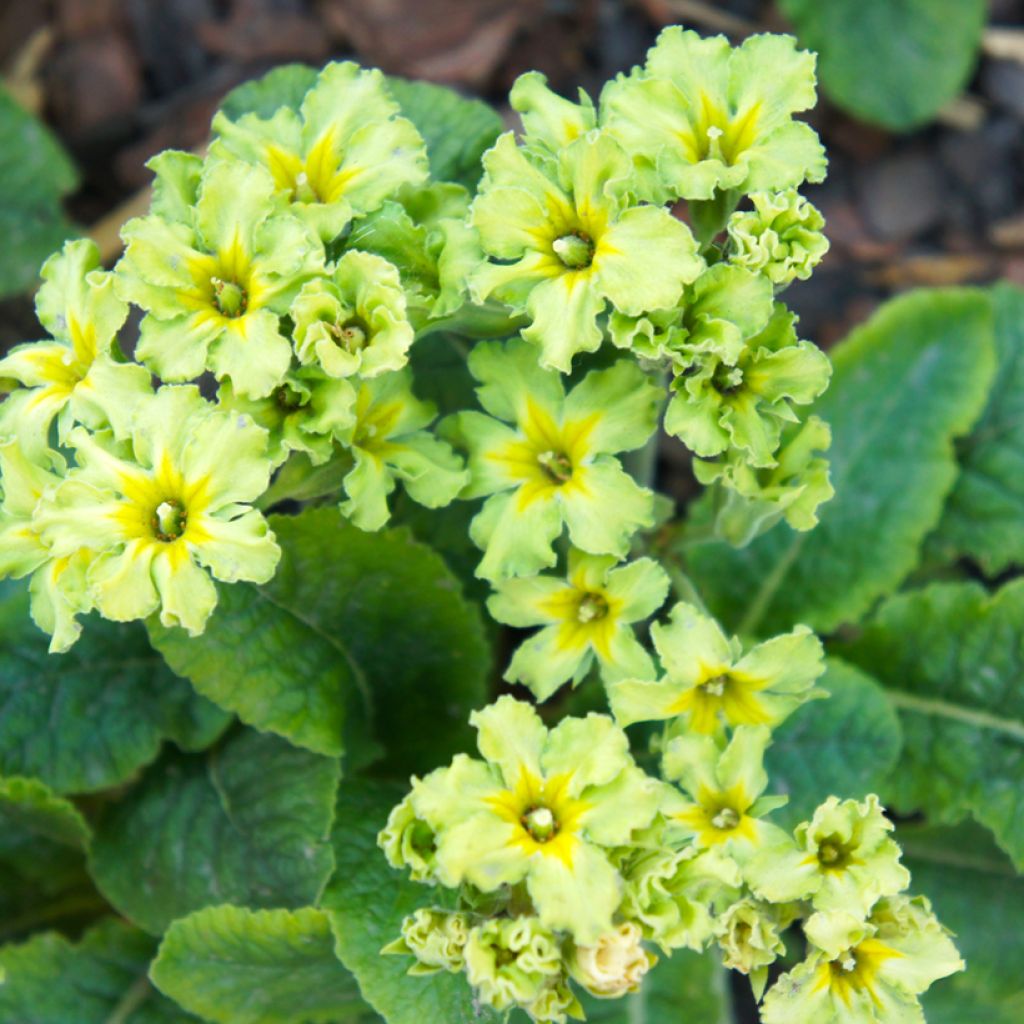

Primula vulgaris Francesca - English Primrose
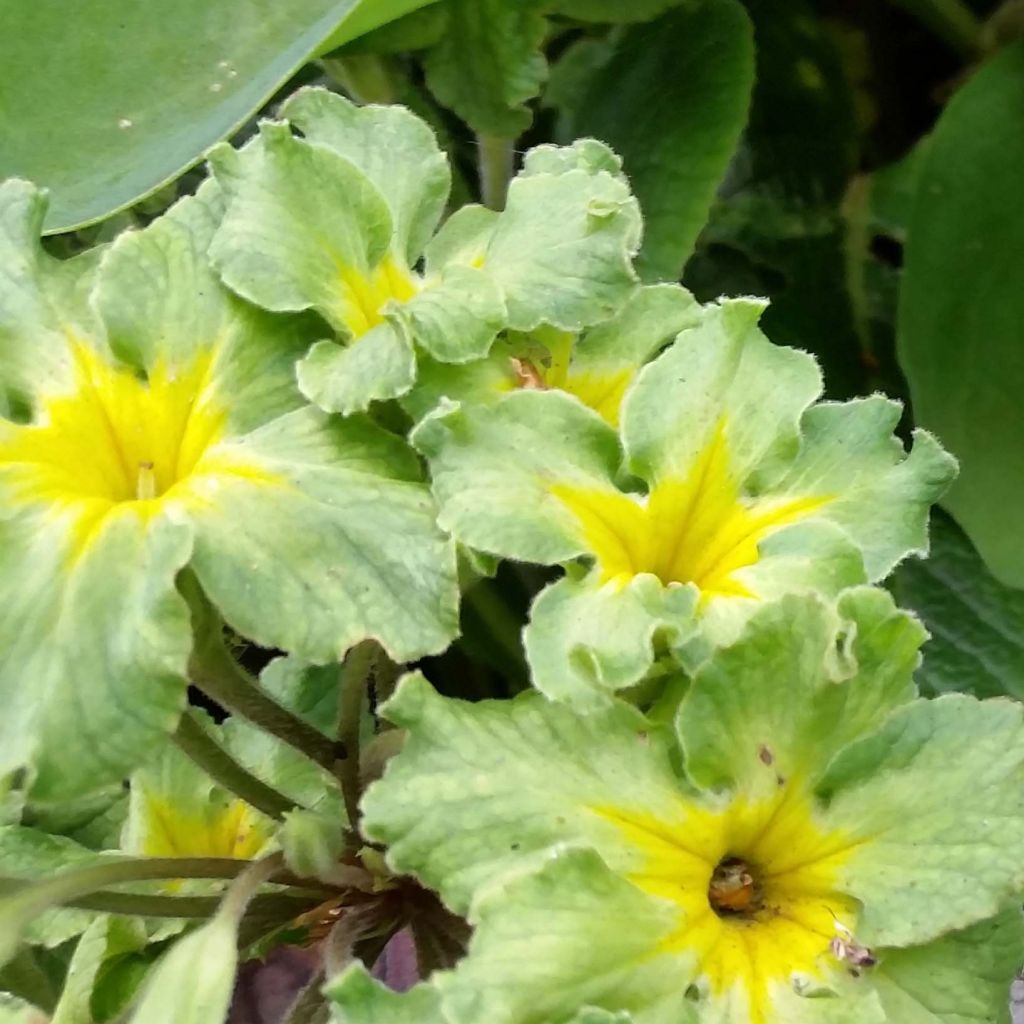

Primula vulgaris Francesca - English Primrose
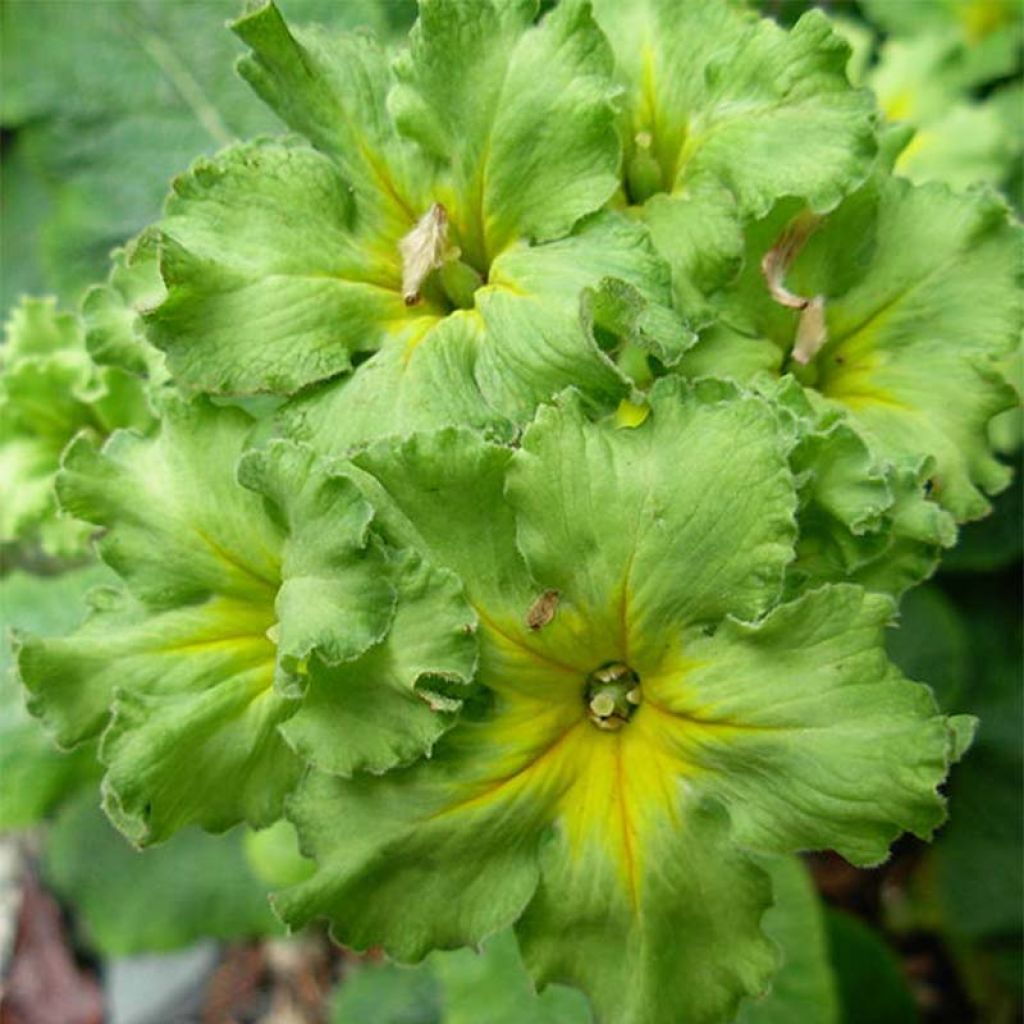

Primula vulgaris Francesca - English Primrose
Primula vulgaris Francesca - English Primrose
Primula vulgaris Francesca
Primrose, Common Primrose, English Primrose
I have already told you that I liked it a lot, to the point that I just bought another set, including one for a friend who is a botany professor and loves green flowers.
MD, 17/03/2024
This item cannot be shipped to the selected country
Delivery charge from €5.90
More information
Schedule delivery date,
and select date in basket
This plant carries a 12 months recovery warranty
More information
We guarantee the quality of our plants for a full growing cycle, and will replace at our expense any plant that fails to recover under normal climatic and planting conditions.
From €5.90 for pickup delivery and €6.90 for home delivery
Express home delivery from €8.90.

Does this plant fit my garden?
Set up your Plantfit profile →
Description
The Primula vulgaris 'Francesca' is a stemless primrose intended to venture off the beaten path, as it offers large flowers with unusual shades until summer, with intense freshness. They are composed of fringed petals with curly edges, in an opalescent jade green shade, radiating around a bright throat, chartreuse green to pale yellow. These flowers bloom for a very long period, unaffected by the whims of the weather. New varietal creations bring these perennials, often grown as biennials, back into the spotlight, much to our delight! They are perfect in pots, in flower beds, in borders, and grow in the sun or partial shade, in fertile and moist soil.
The 'Francesca' Primula is a herbaceous perennial plant of the primrose family, derived from the Primula vulgaris found in our meadows and woodlands. This amazing variety was fortuitously discovered in Canada, in Surrey, on an island in British Columbia, by a gardener named Francesca. It stands out for its long, abundant and continuous flowering, from March-April to July. It is a floriferous plant, which forms a beautiful clump of foliage in a few months, reaching heights of 15 to 25 cm (6 to 10in) and widths of 25 to 35 cm (10 to 14in). They develop more or less evergreen rosettes of wavy and veined leaves, in a beautiful light and vivid green. 'Francesca' produces large flowers with numerous undulations, evolving between different shades of almond green, pistachio green, jade green or chartreuse, illuminated at the centre by a more yellow tone. They are gathered in clusters and carried by short villous peduncles surrounded by luxuriant foliage. This variety appreciates semi-shaded exposures.
The stemless primrose 'Francesca' is a reliable and truly easy-to-grow versatile plant. It deserves a place in all gardens and on all balconies. Original and floriferous, it accompanies spring and extends it until summer, tempering the vibrant summer blooms with its green and tangy notes. In flower beds or in pots on a balcony, this plant pairs well with its pink or yellow-coloured companions, forget-me-nots, peonies, or tall comfreys. Primroses are perfect in borders, low flower beds under the cover of deciduous trees, in rockeries and short grass meadows, among snowdrops and violets. The leaves and flowers are edible and can be consumed raw or cooked.
Properties:
They are the same as those of the common primrose and the oxlip: the flowers are soothing and calming, they are used in expectorant preparations. The leaves fight against the formation of bruises, and the whole plant (especially the root) has analgesic, anti-spasmodic, diuretic, and expectorant properties.
Report an error about the product description
Primula vulgaris Francesca - English Primrose in pictures
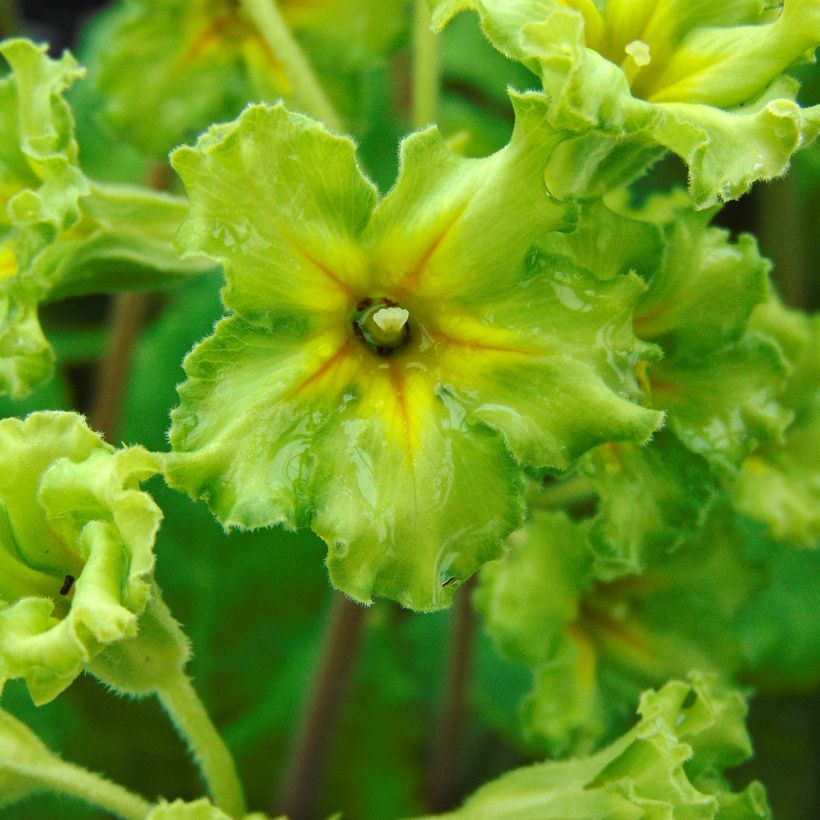

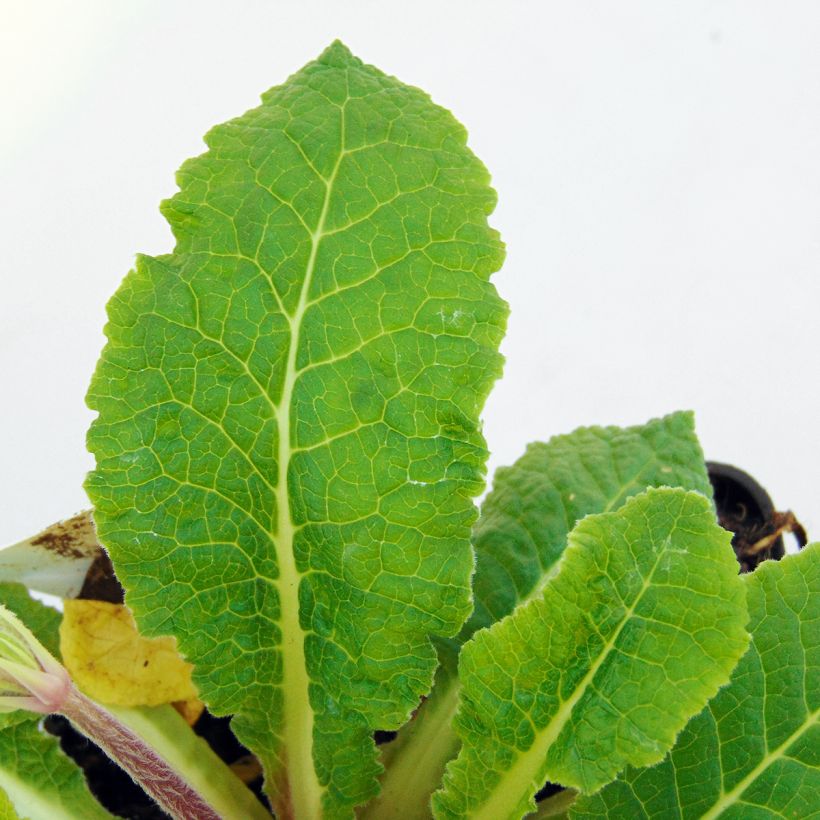

Flowering
Foliage
Plant habit
Botanical data
Primula
vulgaris
Francesca
Primulaceae
Primrose, Common Primrose, English Primrose
Cultivar or hybrid
Other Primula - Primroses
Planting and care
Primroses can be planted in pots and containers or directly in the ground in finely prepared and enriched soil. Plant them as soon as possible upon receipt, in September-October or in March-April. If the intended location is not yet ready or the conditions are unfavorable for planting, you can grow them on as plug plants for 4 to 6 weeks.
In pots and containers, use a good potting soil for flowering plants (geranium-type potting soil) enriched with clay and slow-release fertiliser, light and well-draining. The top of the plug should be level with the soil. Water generously at planting and during the following weeks, as plug plants can dry out quickly. However, be careful of excess water! Make sure to use containers with drainage holes and empty the saucer 10 minutes after watering. Remember to water even during winter if it doesn't rain or if the container is placed in a sheltered location. Do not water during freezing periods.
Very floriferous and fast-growing, primroses are hungry plants. As soon as growth resumes, in late February or early March, and throughout the flowering period, apply a liquid fertiliser for flowering plants containing iron and trace elements 1 to 2 times a week in the watering can. Remove faded flowers to promote new blooms. Once the flowering is over, potted plants can be replanted in the garden in semi-shade.
Planting period
Intended location
Care
-
, onOrder confirmed
Reply from on Promesse de fleurs
Spring flowering perennials
Haven't found what you were looking for?
Hardiness is the lowest winter temperature a plant can endure without suffering serious damage or even dying. However, hardiness is affected by location (a sheltered area, such as a patio), protection (winter cover) and soil type (hardiness is improved by well-drained soil).

Photo Sharing Terms & Conditions
In order to encourage gardeners to interact and share their experiences, Promesse de fleurs offers various media enabling content to be uploaded onto its Site - in particular via the ‘Photo sharing’ module.
The User agrees to refrain from:
- Posting any content that is illegal, prejudicial, insulting, racist, inciteful to hatred, revisionist, contrary to public decency, that infringes on privacy or on the privacy rights of third parties, in particular the publicity rights of persons and goods, intellectual property rights, or the right to privacy.
- Submitting content on behalf of a third party;
- Impersonate the identity of a third party and/or publish any personal information about a third party;
In general, the User undertakes to refrain from any unethical behaviour.
All Content (in particular text, comments, files, images, photos, videos, creative works, etc.), which may be subject to property or intellectual property rights, image or other private rights, shall remain the property of the User, subject to the limited rights granted by the terms of the licence granted by Promesse de fleurs as stated below. Users are at liberty to publish or not to publish such Content on the Site, notably via the ‘Photo Sharing’ facility, and accept that this Content shall be made public and freely accessible, notably on the Internet.
Users further acknowledge, undertake to have ,and guarantee that they hold all necessary rights and permissions to publish such material on the Site, in particular with regard to the legislation in force pertaining to any privacy, property, intellectual property, image, or contractual rights, or rights of any other nature. By publishing such Content on the Site, Users acknowledge accepting full liability as publishers of the Content within the meaning of the law, and grant Promesse de fleurs, free of charge, an inclusive, worldwide licence for the said Content for the entire duration of its publication, including all reproduction, representation, up/downloading, displaying, performing, transmission, and storage rights.
Users also grant permission for their name to be linked to the Content and accept that this link may not always be made available.
By engaging in posting material, Users consent to their Content becoming automatically accessible on the Internet, in particular on other sites and/or blogs and/or web pages of the Promesse de fleurs site, including in particular social pages and the Promesse de fleurs catalogue.
Users may secure the removal of entrusted content free of charge by issuing a simple request via our contact form.
The flowering period indicated on our website applies to countries and regions located in USDA zone 8 (France, the United Kingdom, Ireland, the Netherlands, etc.)
It will vary according to where you live:
- In zones 9 to 10 (Italy, Spain, Greece, etc.), flowering will occur about 2 to 4 weeks earlier.
- In zones 6 to 7 (Germany, Poland, Slovenia, and lower mountainous regions), flowering will be delayed by 2 to 3 weeks.
- In zone 5 (Central Europe, Scandinavia), blooming will be delayed by 3 to 5 weeks.
In temperate climates, pruning of spring-flowering shrubs (forsythia, spireas, etc.) should be done just after flowering.
Pruning of summer-flowering shrubs (Indian Lilac, Perovskia, etc.) can be done in winter or spring.
In cold regions as well as with frost-sensitive plants, avoid pruning too early when severe frosts may still occur.
The planting period indicated on our website applies to countries and regions located in USDA zone 8 (France, United Kingdom, Ireland, Netherlands).
It will vary according to where you live:
- In Mediterranean zones (Marseille, Madrid, Milan, etc.), autumn and winter are the best planting periods.
- In continental zones (Strasbourg, Munich, Vienna, etc.), delay planting by 2 to 3 weeks in spring and bring it forward by 2 to 4 weeks in autumn.
- In mountainous regions (the Alps, Pyrenees, Carpathians, etc.), it is best to plant in late spring (May-June) or late summer (August-September).
The harvesting period indicated on our website applies to countries and regions in USDA zone 8 (France, England, Ireland, the Netherlands).
In colder areas (Scandinavia, Poland, Austria...) fruit and vegetable harvests are likely to be delayed by 3-4 weeks.
In warmer areas (Italy, Spain, Greece, etc.), harvesting will probably take place earlier, depending on weather conditions.
The sowing periods indicated on our website apply to countries and regions within USDA Zone 8 (France, UK, Ireland, Netherlands).
In colder areas (Scandinavia, Poland, Austria...), delay any outdoor sowing by 3-4 weeks, or sow under glass.
In warmer climes (Italy, Spain, Greece, etc.), bring outdoor sowing forward by a few weeks.

































